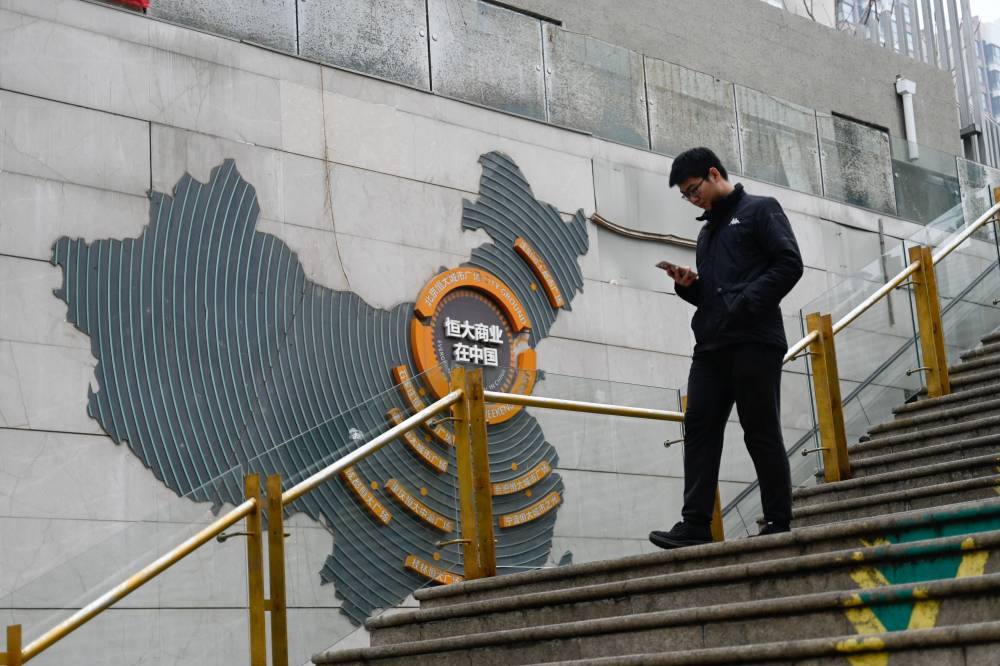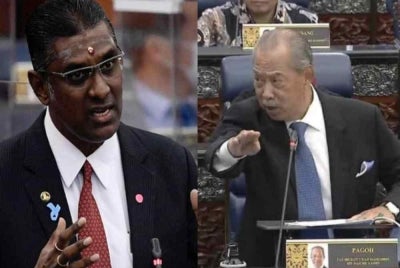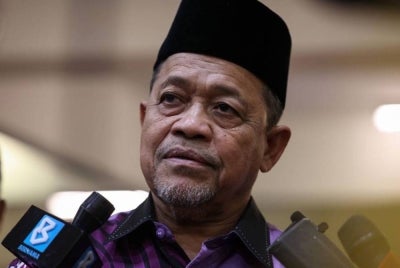China's Evergrande: What happens next after liquidation order?
A warning sign for China's troubled property market?

BEIJING - A Hong Kong court on Monday issued a winding-up order for Chinese real estate giant Evergrande, as the embattled firm teeters on the brink of bankruptcy.
The firm's astronomical debt has become emblematic of a years-long crisis in China's property market -- with knock-on effects across the world's second-largest economy.
Here's what we know about what Monday's decision means for Evergrande and China:
What do Evergrande's creditors want? Evergrande was once China's biggest real estate firm, a giant in a sector that ballooned as property became the foundation of a burgeoning middle class's growing wealth.
But it accrued massive loans at a time when credit flowed freely -- and when Beijing in 2020 turned off the taps in a bid to rein in the sector, it was left owing more than $300 billion.
Unable to repay interest on its loans, it formally defaulted in December 2021.
In a bid to get its money back, creditor Top Shine Global filed a winding-up petition in Hong Kong that would force liquidation of the firm's assets in the city if it did not provide a credible repayment plan.
But having been given months to come up with a plan to repay its debts that suited its creditors, a Hong Kong judge ruled Monday that "none of that has happened".
Despite the ruling, analysts are sceptical any of them will get repaid in full.
Ninety percent of its assets are in the mainland, according to the Hong Kong court judgment on Monday.
"I doubt (Evergrande's) offshore creditors would receive substantial recovery proceeds from the liquidation order," Zerlina Zeng, a credit analyst at Creditsights Singapore LLC, told Bloomberg.
What happens to Evergrande now? Judge Linda Chan ruled that boss Hui Ka Yan, known as Xu Jiayin in Mandarin and who is under criminal investigation in the mainland, would no longer control the company and its broader management would be revamped in a bid to ease creditors' fears.
She will also now appoint a body tasked with liquidating Evergrande's assets in Hong Kong.
Evergrande has insisted that its operations in the mainland will be unaffected by the decision.
The firm last year listed 1.7 trillion yuan ($236.6 billion) in assets, with it having since shed around 50 billion of that in a bid to get hold of much-needed cash, according to Chinese media.
But it's not immediately clear how much of the firm's assets will be able to be retrieved by its offshore creditors.
Given Monday's decision took place in Hong Kong, any seizing of the firm's assets on the mainland may require a separate legal decision there -- and that big hitting creditors there be paid off first.
Chinese "courts can refuse to recognise or assist Hong Kong liquidators in a number of ways", Jonathan Leitch, a restructuring partner at law firm Hogan Lovells, told AFP.
"As the vast majority of the assets are onshore, whether there is any value in these assets once priority creditors have been satisfied is something the liquidators will need to explore."
How will the decision affect China's economy? Evergrande's legal troubles in Hong Kong on Monday are unlikely to spark too much concern on the mainland, analysts caution.
"For those anxiously reading (China) headlines today... and working themselves into a panic: Evergrande's demise in 2021 didn't lead to a Lehman Moment in China," analysis firm China Beige Book said in a post on X, formerly Twitter.
"The disintegration of its already dead husk in 2024 won't either."
But its woes have become emblematic of a years-long crisis in the country's property market that had reverberated throughout the world's second-largest economy.
In response to the crisis in the real estate market, Beijing has issued several rounds of bailout funds for the embattled sector, providing nearly 10 trillion yuan ($1.4 trillion) in loans to real estate last year.
And the move will likely remind investors of the ill-health of the sector, Ken Cheung Kin Tai, an analyst at Mizuho Bank, said in a note.
"Authorities will probably manage this liquidation in a way that doesn't cause major contagion effects to other parts of the economy," Shane Oliver, chief economist at Sydney-based financial services firm AMP, told AFP. - AFP
Download Sinar Daily application.Click Here!














